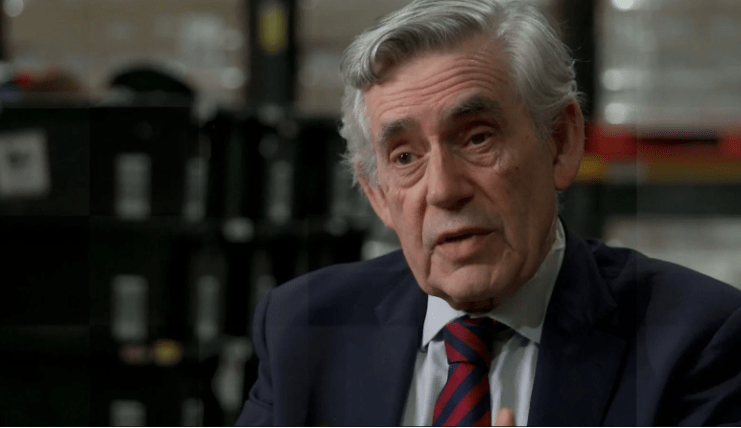Gordon Brown has issued a stark warning about the growing levels of poverty across the UK, claiming it mirrors the deprivation last seen six decades ago.
In a powerful intervention, the former prime minister called on Sir Keir Starmer and the Labour government to immediately scrap the controversial two-child benefit cap.
Speaking out, Brown urged action at the upcoming Autumn Budget to address what he described as a “social crisis” engulfing Britain.
“We’re dealing with a divided Britain. We’re dealing with a social crisis,” said Brown, in an interview with BBC Radio 4.
Gordon Brown, who also served as Labour chancellor, didn’t hold back. Drawing from his own lived experience, he described how the worsening situation reminds him of the poverty of the post-war years.
“I live in the constituency in which I grew up. I still live here. I see every day this situation getting worse… This is a return to the kind of poverty of 60 years ago. I think we’ve got to act now, and that’s why it’s urgent that we take action in this budget,” he said.
The two-child cap, introduced in 2017 by then Tory chancellor George Osborne, restricts child benefit to the first two children in most families. Brown, alongside policy experts at the Institute for Public Policy Research (IPPR), argues that lifting this cap could free nearly half a million children from poverty.
“You cannot have a situation where under a Labour government, child poverty numbers just go up and up, and up.” Gordon Brown’s warning comes at a critical moment, as Labour prepares to define its social priorities in the first budget since taking power. His message: fight child poverty — now.
Funding the Change: Gambling Industry in the Spotlight
To fund the £3.2 billion needed to eliminate the cap, Brown backed new proposals from IPPR that suggest raising taxes on gambling. According to the think tank, the industry is “under-taxed”, and adjustments such as:
- Increasing online casino tax from 21% to 50%
- Raising the slots and gaming machine tax from 20% to 50%
- Upping the general betting duty on non-racing bets from 15% to 25% could generate the required funds without slashing other areas of government income.
Brown underscored the urgency, saying: “At the budget, the government has one straightforward choice: gambling will not build our country for the next generation, but children free from poverty will.”
Labour’s Response: Doors Not Shut Yet
Chancellor Rachel Reeves responded cautiously. While not committing outright, she acknowledged the former PM’s concerns, telling reporters: “No child should grow up hungry or parents not be able to afford the basics for their family.”
Reeves confirmed that the Labour government had launched a child poverty taskforce, set to report in the autumn. She also noted an ongoing review into gambling taxation.
Sir Keir Starmer is believed to support scrapping the cap. However, with a £51 billion hole looming in public finances, the leadership is under pressure to balance compassion with caution.
MPs Rally Behind Brown’s Call
Brown’s remarks have reignited debate within Labour ranks. MPs across the party are now urging swift action:
Kate Osborne, MP for Jarrow and Gateshead East, backed Brown “completely,” warning that: “Child poverty scars people for life… Scrapping the cap would take 500,000 kids out of poverty immediately.”
Rachael Maskell, MP for York Central, called for broader welfare reforms and praised the former PM’s push: “It is vital that the right fiscal interventions are seen as a priority… Scrapping the cap will not be enough.”
Maskell, previously suspended for challenging welfare policies, argued for a more holistic approach: fair wages, family support, and strong foundations for children to thrive.
The Betting and Gaming Council dismissed the IPPR’s recommendations as: “Economically reckless, factually misleading, risk driving huge numbers to the unsafe, unregulated gambling black market.”
They claim that additional tax hikes, on top of existing reforms costing the sector over £1 billion, would harm jobs, growth, and even public finances.
The Treasury has yet to issue a formal comment. With Labour’s child poverty strategy delayed until autumn, pressure is mounting for clarity and bold decision-making.
As Brown’s intervention gains momentum, the government now faces a defining choice — one that may shape not just its first budget, but the lives of hundreds of thousands of children across the UK.





